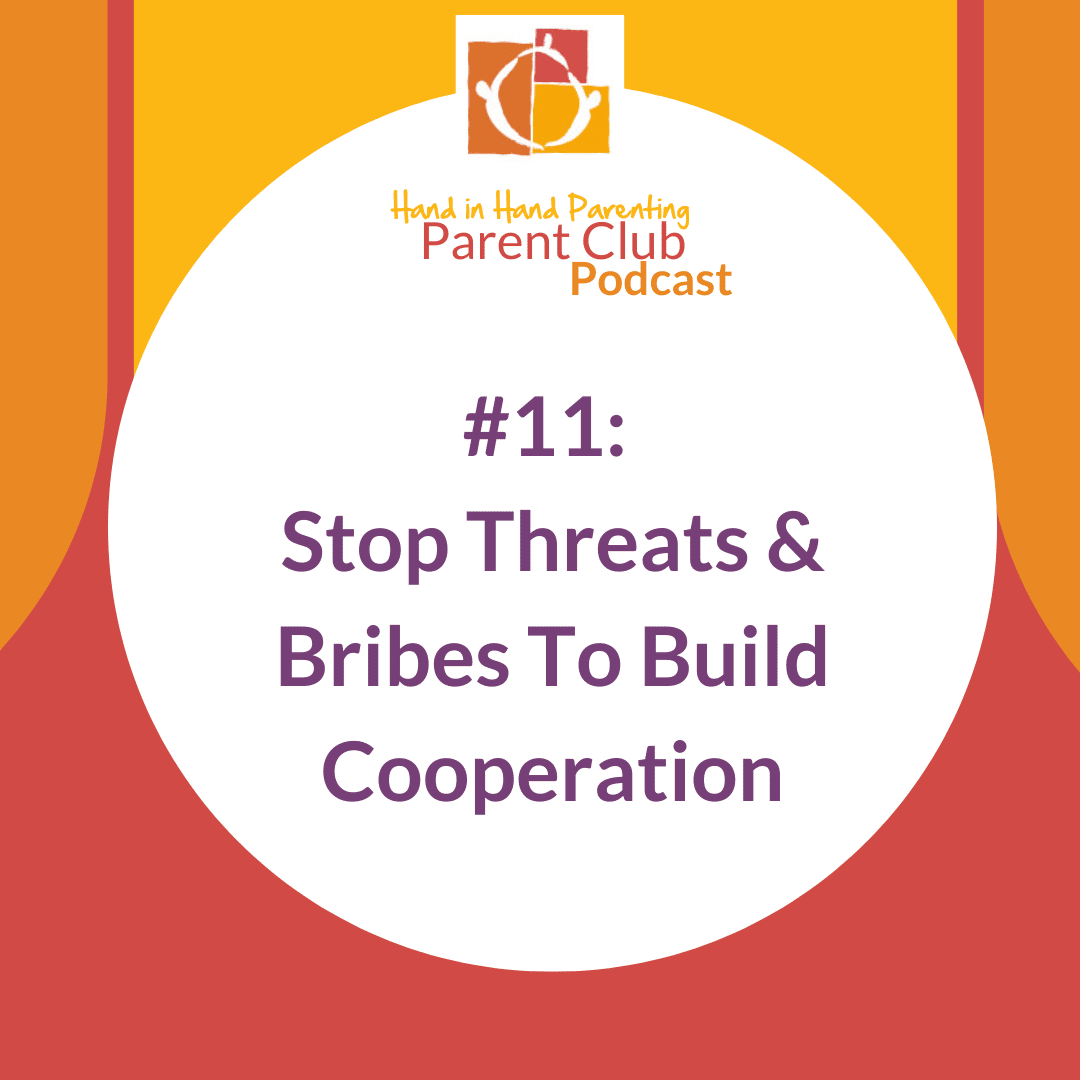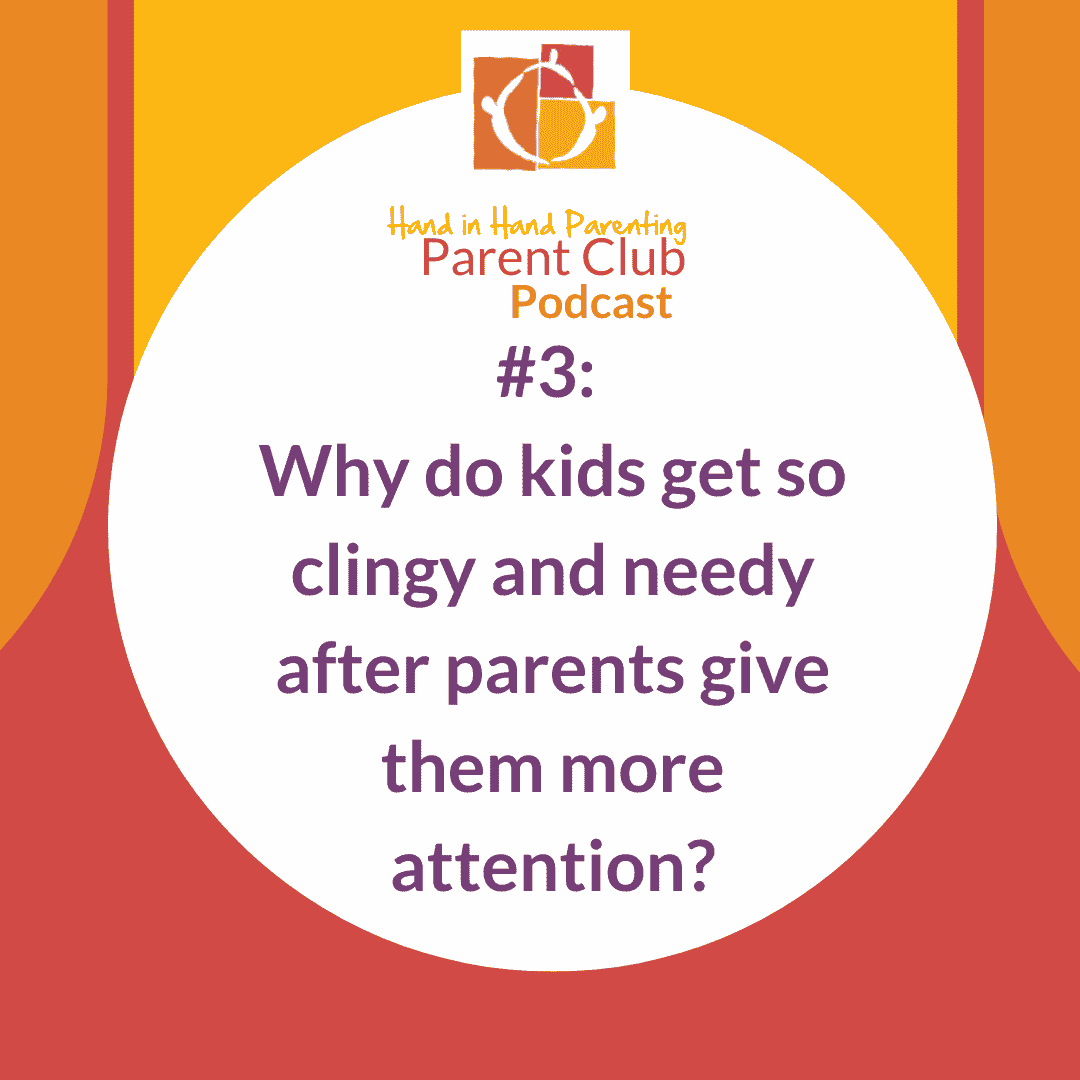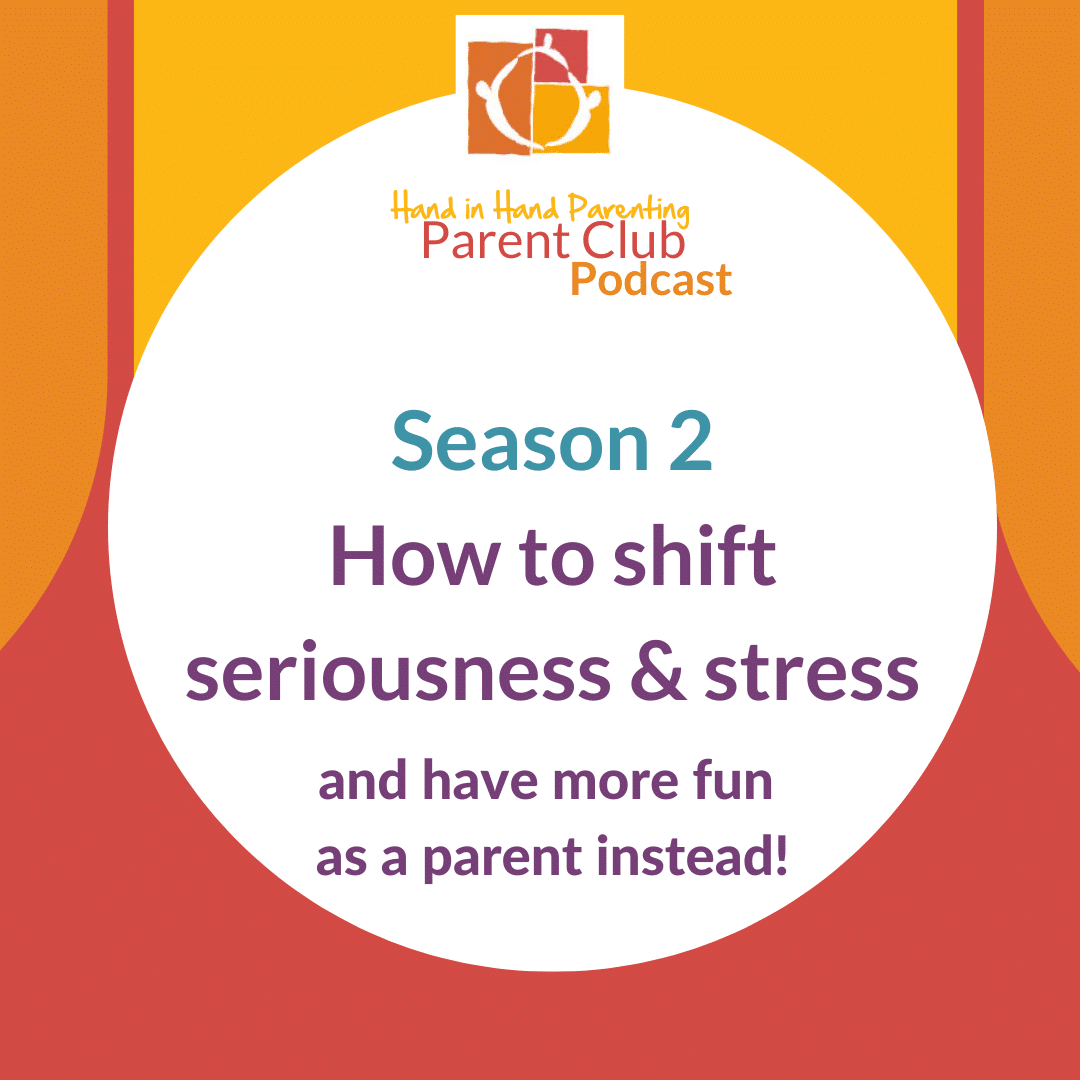Episode Transcript
Speaker 0 00:00:00 Thank you so much for tuning into the hand in hand parent club podcast, please like, and subscribe to hear more and to connect with us between these episodes. Come on over to hand in hand parenting.org to join the parent club where you can get coaching classes and live support.
Speaker 1 00:00:13 Come join our vibrant community of parents in the parent club who are committed to getting the support they need to be the parents they wanna become. We'd be honored to support you too. This podcast and the parent club are part of hand in hand parenting, a nonprofit organization that supports parents all over the world. We are here for you when parenting gets hard. Hey there, parents were so glad you're back with us. And our question this week is how do I get my kids to listen?
Speaker 0 00:00:48 So hand in hand parenting takes a slightly different view of this idea of we just want our kids to listen. Um, and we actually look at it from a kind of a bottom up angle where we ask ourselves the question, why can't they listen? Because our philosophy assumes that ch children, um, listen, when they can, they want to connect with us. They want to do well. So we wanna revisit a topic that we brought up in the last, um, episode about how our brains have these different processing systems. We have our thinking brain, which is great with logic and reason and patience and big picture thinking. And then we have our feelings system, our emotional system, our limbic system, and that system is wired to react. And that's where our feelings live. That's where our kind of sense of am I safe in the world lives.
Speaker 0 00:01:54 So when a child is in a moment of upset and they're reacting and they are off track with their behavior, we don't think why can't they just listen to me? Um, if I just explain it to them, they'll, they'll get it. We think, Ugh, this, this child is in an emotional state and we have to do something a little bit differently to reach them on that emotional system level. First, before we can even think about talking to their thinking brain with logic and reason and being rational. So this is why barking an order from across the room as many times as I've tried, it <laugh> as many times as I hoped it would work. It just doesn't work.
Speaker 1 00:02:37 Be nice. Be nice.
Speaker 0 00:02:39 Stop arguing with your sister. Um, be careful, right? Be careful. That's a good one too. These don't work because they literally can't hear you. They cannot process words because words are part of your thinking brain. So if they could, they would is a phrase that we would love for you to keep with you. Um, as you experiment this week, um, they already know that they're not supposed to behave this way.
Speaker 1 00:03:05 Yeah. And you know this, um, why, why will my kids listen? It, it really kind of what we're saying is why won't they obey? Yes. You know, like that's kind of the euphemism and, um, that's why, you know, this hand in hand perspective of if they could, they would is so helpful. And I can remember before I found hand in hand, you know, my son would be well misbehaving. I didn't know to call it off track. I didn't realize that he couldn't think, and I would be wanting him to do something or stop doing something. And I can remember, I, I wanted to be a gentle parent. Um, but I can remember like flipping through the Rolodex in my mind. And for those of you who are two young to know what a Rolodex is, it was this of around spiral thing of, of note cards that had, um, names and addresses on it.
Speaker 1 00:04:01 And you would flip through it and it would go round and round. So in the that's my brain going round and round and round, like, how do I make this kid stop doing this? And I would, I didn't wanna threaten, I didn't wanna punish you. I had already tried reasoning. And I was so super frustrated, um, that, uh, you know, that I couldn't, you know, I was like, how do I make him do what I want him to do? So the wonderful thing about when I discovered hand in hand and our tool, our approach to setting a limit is what works better is to actually bring the limit, physically bring the limit and, and use very few words. Cuz as Emily said, you know, they can't process words. They're they're, they, they're not in their thinking brain. They're in their feeling part of their brain.
Speaker 1 00:04:54 They're having a lot of feelings about something often. We don't know what it is. So when I bring the limit, actually physically put my arm around my son and say, sweetie, I can't let you do that. Just a few words, but really what's working well is the connection is physically connecting with him. And, and um, so you know, I don't, it's not a teaching moment. I'm not asking questions. I'm not asking him to use your words. Can his doesn't have any access to that language part of his brain, you know, but I'm connecting with him and then I'm gonna welcome the feelings because sometimes that's all they need to get it, get to get back on track. Just sometimes all they need is for us to connect with them using very few words, five words or less, which is the article you're gonna get this week, wonderful article from our founder, Patty LER on how to set limits using five words or less.
Speaker 1 00:05:55 Um, and we do this again because they're in that emotional state. If they, if they weren't, they wouldn't, they wouldn't be behaving this way. They wouldn't be off track. So the combo, a combination of our warmth, along with this firm warm limit of, I can't let you do that. No, sweetie. No, no, no, not now that, that kind of a, just that little bit of language, it's, it's just enough to connect where one of two things may happen. They're either they either, may the connection may be enough for them to get back on their thinking brain and, and cooperate, or they're gonna continue with their feelings. And as we we've talked about, um, in pre in previous episodes, then we're gonna listen to their feelings. We're gonna stay listened to their feelings because we know that if they get a chance to get those feelings up and out like the pebble on the shoe analogy that we've used before, then, then they're gonna be able to reconnect to their thinking brain.
Speaker 0 00:07:04 So I, I think it's so important when we're talking about setting limits and bringing the warmth. I, I know this was an area where I struggled at first because I had my own big backlog of frustration of just desperately wanting my child to do what I said when I said it. Um, so, you know, after lots of listening partnership opportunities where I get to kind of be that demanding ogre <laugh> and even, you know, laugh about it sometimes. Um, I, I really needed a lot of practice to authentically be warm in my heart as I'm bringing the limit and not just being like putting on a smiley face while inside I'm feeling rage. Like they can feel it, they can sense it. Our emotional systems are experts at nonverbal communication. So we really have to bring the warmth and practice the warmth and find ways to authentically find the warmth.
Speaker 0 00:08:02 Um, so listening partnerships is one way, um, but how it actually looks in the minute, something that helped me shift my, my being in these moments of setting limits was to imagine that my child was like a sweet little animal with its foot caught in a trap. And I was just desperately trying to help that animal, even though they were wild with fear and trying to bite me while I was, you know, just helping them to ease, open that trap so they could get out of it when our children are in emotional state and they're off track in their behavior, we can assume that they are in an emotional emergency, they're in an emotional trap. So when we move toward them, we're doing it in this, in this calm, loving energy way where we're just kind of tiptoeing toward them with our availability, with our attention.
Speaker 0 00:09:00 We can see the big picture of, I know, as soon as you get your foot out of this trap, you're gonna feel a lot better. The healing can really happen. So in that moment, we're not really trying to calm them down. That's not the point of, of setting limits. Um, in this approach, we're trying to facilitate actual healing by being that calm anchor for them during their emotional trap moment. So our tone is key and our authentic feelings are key. Um, so really bringing, coming with warmth from your heart, we believe that they are good and they don't want this off track behavior to be happening either. Um, and as soon as they are, they are, um, free of this emotional track that they're in. They'll be back to their good thinking, warm, caring selves. Again,
Speaker 1 00:09:57 You know, there's a mom in the parent club who wrote one time that, um, it was really beautiful how, when she's looking at her child, who's just in a fury or in a mess of meltdown or, you know, refusing to do what she's asking them to do. She thinks about just like shifting her perspective. Like when you're looking straight on, you don't see that their foot is caught in the trap, but like when you come around to the side, then you see, oh yes, that's why they're crazy, you know, with screaming and, and I hate you and no, I'm never gonna brush my teeth, you know, because they're because they're caught in that emotional trap of all those feelings, but that idea of, you know, just shifting your perspective coming around and then looking at it from a different angle, you like, oh yeah, yeah.
Speaker 1 00:10:53 Now I see they're caught in the trap. So mm-hmm <affirmative> so our one small thing that we are gonna, um, suggest you do this week is when your child is off track or you are wanting them to do something or stop doing something that you make physical contact first that you put an arm around them, that you put your hand on the toy that they're about to grab that or put your hand on their hand before they throw something, you know, just make physical contact and then warmly with very few words, say, no, not gonna let you do that just with as most much warmth as you can muster. So we hope that you'll check in with us and let us know how, how it goes and what you discover and that we'll see you next week.
Speaker 0 00:11:43 And next week, we're gonna give you more ideas about how to bring limits. Um, there are more options than just that warm firm limit. And we'll, we'll talk about those next time.
Speaker 1 00:11:54 Yep. So try the one small thing this week and then we'll have more for you next week. Bye bye.
Speaker 0 00:12:01 Thank you so much for tuning into the hand in hand parent club podcast, please like, and subscribe to hear more and to connect with us between these episodes. Come on over to handin hand parenting.org to join the parent club where you can get coaching classes and live support.
Speaker 1 00:12:14 Come join our vibrant community of parents in the parent club who are committed to getting the support they need to be the parents they wanna become. We'd be honored to support you too. This podcast and the parent club are part of hand in hand parenting, a nonprofit organization that supports parents all over the world. We are here for you when parenting gets hard.


